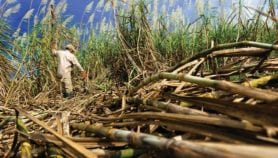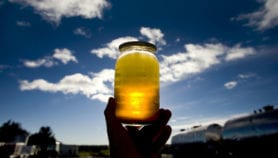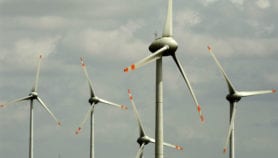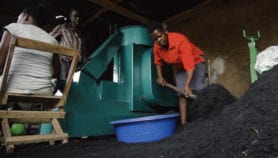By: Paula Leighton
Send to a friend
The details you provide on this page will not be used to send unsolicited email, and will not be sold to a 3rd party. See privacy policy.
[SANTIAGO] A fungus found in a Patagonian rainforest could provide an alternative source of biofuel, according to new research.
The fungus, Gliocladium roseum, grows in the ulmo tree (Eucryphia cordifolia), a species native to the Patagonia — the southern territories of Argentina and Chile.
Researchers, whose work is published in Microbiology this month, found that G. roseum possesses the metabolic machinery to produce a wide variety of hydrocarbons virtually identical to the compounds in diesel obtained from crude oil.
Because of this property, the volatile gases produced by the fungus have been dubbed ‘myco-diesel’.
"Many fungi make ethanol, but none to date produce this kind of mixture of diesel hydrocarbons," lead author Gary Strobel, professor of plant sciences and plant pathology at the US-based Montana State University (MSU), told SciDev.Net.
A promising aspect of this discovery is that G. roseum produces myco-diesel directly from cellulose-rich products, skipping the fermentation step needed to produce ethanol, he says.
"Cellulose is the most abundant organic substance on the planet and it mostly exists as waste material — straw, chaff, leaves, cuttings, etc.," says Strobel.
Considering the dramatic increase in global food prices, the paper states: "It is both timely and interesting that G. roseum can utilise cellulose for the production of hydrocarbons given the enormous volumes of foodstuff grains currently being utilised for alcohol (fuel) production."
Strobel does not know when the myco-fuel will be commercially available, since there are many steps to go through before producing the diesel on an industrial scale, including decoding the genetic makeup of G. roseum to identify the genes responsible for its diesel-making properties.
"The main value of this discovery may not be the organism itself, but the genes responsible for the production of these gases," says Strobel.
The scientists found that G. roseum makes less myco-diesel when it feeds on cellulose compared to sugars, but new developments in fermentation technology and genetic manipulation could help improve the yield, they say.
Researchers in government agencies and private industry have already shown interest in the fungus, and further research will be carried out along with MSU’s College of Engineering and a team from Yale University.
Link to full paper ![]() [172kB]
[172kB]
References
Microbiology 154, 3319 (2008)













